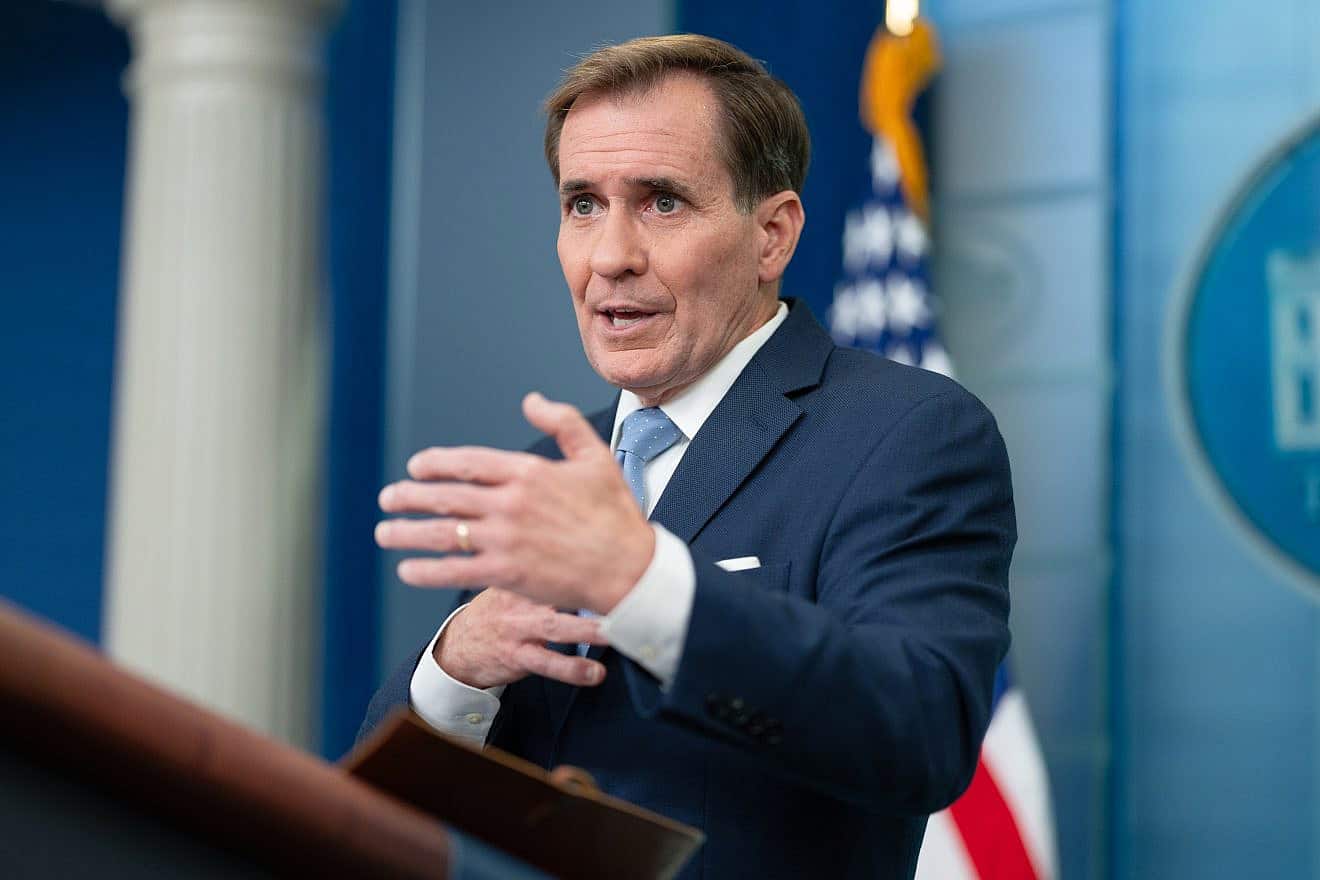by Khaled Abu Toameh
I do not want to live under a Palestinian government. Which means I only have one home, even if I'm not Jewish: Israel." — Nuseir Yassin ("Nas Daily"), Israeli Arab blogger, the day after October 8, 2023.
"For the longest time, I struggled with my identity. A Palestinian kid born inside Israel. Like...wtf. Many of my friends refuse to this day to say the word 'Israel' and call themselves 'Palestinian' only. But since I was 12, that did not make sense to me. So, I decided to mix the two and become a 'Palestinian-Israeli.' I thought this term reflected who I was. Palestinian first. Israeli second. But after recent events, I started to think. And think. And think. And then my thoughts turned to anger. I realized that if Israel were to be 'invaded' like that again, we would not be safe. To a terrorist invading Israel, all citizens are targets.... And I do not want to live under a Palestinian government. Which means I only have one home, even if I'm not Jewish: Israel." — Nuseir Yassin ("Nas Daily"), Israeli Arab blogger, the day after October 8, 2023.
These [Arab Israeli] leaders will do anything to grab the attention of the media – even if that means inciting against Israel. They know that when they deal with the real problems facing their Arab constituents – such as unemployment and poverty – no one will write about them in the media. Yet, when these leaders make fiery statements against Israel, they often win headlines and front-page stories. As far as they are concerned, "I don't care what you write about me as long as you spell my name right."
By engaging in anti-Israel incitement, these Israeli Arab leaders are causing huge damage to their own constituents. These leaders make the Israeli Arabs look as if they are a "Fifth Column" -- an enemy within. These leaders are stoking fear and mistrust between Jews and Arabs inside Israel, while ignoring that most Israeli Arabs say they feel comfortable living in the Jewish state.
If Israeli Arabs want to secure a prosperous future for themselves and their children, they need to get rid of extremist Arab leaders who speak and act against the interests of the Arab community inside Israel. If these Arab leaders are unhappy living in Israel, they are welcome to move to the West Bank, Gaza Strip or any Arab country -- where they will quickly miss Israel's democracy and freedom of speech.

The Iran-backed Palestinian Hamas terrorist group has long been seeking to spark a civil war between Israel's Arab and Jewish citizens. Over the past few years, Hamas has called on the two million Arab citizens of Israel to revolt against their own country and join the Jihad against Israel.
Hamas's attempts were partially successful in May 2021, when some Arabs attacked their Jewish neighbors. The assaults occurred at the same time as an Israeli military operation in the Gaza Strip. That operation was launched in response to rockets fired by Hamas and other Palestinian terrorist groups at Israel. Fortunately, the violence that erupted in 2021 ended quickly.
Since then, Israel's Arab citizens appear to have reconsidered the mistake they made when they heeded Hamas's calls for rising against their own state. After the October 7, 2023 Hamas-led attack on Israel, which resulted in the murder of 1,200 Israelis and the wounding of thousands, the Arab citizens of Israel have not only refrained from engaging in violent acts against their Jewish fellow citizens, but have gone as far as denouncing the atrocities.
A poll conducted after the October 7 massacre showed that a majority of the Arab citizens of Israel (68%) believe that the attack did not reflect Arab society's values, the Palestinian people, and the Islamic nation. The poll also found that 86% support helping out with civilian volunteering efforts during the war between Israel and Hamas, while 70% reported that they feel part of Israel and its problems.
Commenting on the results of the survey, Prof. Mouna Maroun, Vice President and Dean of Research at University of Haifa and the former Head of the Sagol Department of Neurobiology, the first Arab woman to hold a senior faculty position in natural sciences, said:
"I'm an Israeli Arab... I'm embarrassed. And Hamas is to blame... For the sake of humanity, I implore the Arab community to move forward and to cleverly and responsibly understand the Jewish narrative, as we have been asking them to understand ours for 75 years. For the first time, as an Arab minority we are requested to stand with empathy and understand the majority's narrative...
"In the city of Haifa, there are mixed neighborhoods and mixed apartment buildings. At the University, Jews and Arabs learn and grow together. This is the paradigm that Israel must replicate in order to move on from the tragedy of Oct. 7.
"This [Arabs identifying with Israel] demonstrates that the Arab community in Israel aspires to further integrate into society and distance itself from bad faith actors like Hamas...
"Israeli Arabs and Jews are like salt and pepper: They both belong on the table, and once they're sprinkled into a dish it's almost impossible to distinguish between them. We must embrace and cherish our shared destiny by working with each other, engaging in meaningful dialogue, and understanding that when it comes to coexistence and shared life, there's nothing to fear."
Maroun, of Haifa University, is among other Arab women who hold senior positions in Israeli universities.
In 2021, the Board of Governors of the Hebrew University in Jerusalem announced that Prof. Mona Khoury-Kassabri had been elected Vice President of Strategy and Diversity at the university. It was the first time that a member of the Arab community was appointed to the senior position of vice president. "I am deeply honored to be the first Arab to serve as a Hebrew University Vice President," Khoury-Kassabri said.
"I feel confident that my experience both inside the classroom and in senior roles at the university will serve me well in promoting the strategic goals and inclusionary values of this great institution."
In addition to education, Israel's medical field has always served as a model of Jewish-Arab equality and coexistence. Jewish and Arab patients often share the same room in Israeli hospitals, where Jewish and Arab doctors and nurses work together.
The percentage of Arab Israeli physicians in Israel has been on the increase. By the end of 2021, Arab physicians constituted 24% of Israeli doctors aged 67 and younger. That same year, 43% of new licenses for physicians were awarded to Arab and Druze doctors. The share of Arab citizens in other healthcare professions is also considerable.
According to Fahima Abbas, a researcher at Adva Center, an Israeli progressive think-tank that monitors social and economic developments:
"Hospitals, the places in which so many individuals experience pain and illness, are also the places of cooperation between Jewish and Arab physicians. It is incumbent upon us to remember that and to strengthen that cooperation in ordinary times as well as in emergencies. "
In 2022, Judge Khaled Kabub became the first Muslim appointed to Israel's Supreme Court. All previous Arab Israeli justices on the 15-member court had have been Christians, another example of how Israel's Arab citizens have access to senior positions in the public sector.
In 2019, Samer Haj Yehia became the first Arab head of a major bank in Israel when he was appointed Chairman of the Board of Directors of Bank Leumi.
Since 1948, more than 80 Arab citizens have been elected as members of Israel's Knesset (parliament). In 2020, the Knesset had 17 Arab members out of 120.
A survey conducted by the Moshe Dayan Center at Tel Aviv University found that 57% of Israelis Arabs believe that Hamas intentionally targeted civilians, including women and children, during the October 7 onslaught. At least 54% approve of Arab Israelis taking part in the efforts to explain Israel's position in the war to the world. Another 66% of Israeli Arabs are in favor of an Arab party joining the government coalition in Israel.
The study was initiated by the Konrad Adenauer Program for Jewish-Arab Cooperation, part of the Moshe Dayan Center for Middle Eastern and African Studies at Tel Aviv University. The head of the program, Arik Rudnitzky, said the study proves that Arab Israelis identify more with Israel than in the past:
"The war between Israel and Hamas has generated an unprecedented change in the positions of Israel's Arab citizens. It is manifested in the fact that for the first time, in contrast to all previous surveys, civic Israeli identity plays as strong a role [for Israeli Arabs] as national Arab identity."
While the attitudes of the Israeli Arabs toward Israel are encouraging, some of their leaders continue to act against the interests of their own people. These leaders, including current and former members of the Israeli Knesset (parliament), have long been taking advantage of the country's democratic system to engage in anti-Israel rhetoric.
These leaders will do anything to grab the attention of the media – even if that means inciting against Israel. They know that when they deal with the real problems facing their Arab constituents – such as unemployment and poverty – no one will write about them in the media. Yet, when these leaders make fiery statements against Israel, they often win headlines and front-page stories. As far as they are concerned, "I don't care what you write about me as long as you spell my name right."
By engaging in anti-Israel incitement, these Israeli Arab leaders are causing huge damage to their own constituents. These leaders make the Israeli Arabs look as if they are a "Fifth Column" -- an enemy within. These leaders are stoking fear and mistrust between Jews and Arabs inside Israel, while ignoring that most Israeli Arabs say they feel comfortable living in the Jewish state.
The Hamas-led October 7 atrocities did not distinguish between Jew and Arab, old and young, male and female, black and white. At least 23 Arab Israeli citizens were murdered by Hamas terrorists during the attack on that day or by Hamas rocket attacks in the ensuing days. Most of the victims were Bedouin residents living in the south of Israel. Moreover, several Bedouin men and women were abducted by Hamas.
The day after the massacre, Israeli Arab blogger Nuseir Yassin, popularly known as "Nas Daily," posted the following on X (formerly Twitter):
"For the longest time, I struggled with my identity. A Palestinian kid born inside Israel. Like...wtf. Many of my friends refuse to this day to say the word 'Israel' and call themselves 'Palestinian' only. But since I was 12, that did not make sense to me. So, I decided to mix the two and become a 'Palestinian-Israeli.' I thought this term reflected who I was. Palestinian first. Israeli second. But after recent events, I started to think. And think. And think. And then my thoughts turned to anger. I realized that if Israel were to be 'invaded' like that again, we would not be safe. To a terrorist invading Israel, all citizens are targets.... And I do not want to live under a Palestinian government. Which means I only have one home, even if I'm not Jewish: Israel."
If Israeli Arabs want to secure a prosperous future for themselves and their children, they need to get rid of extremist Arab leaders who speak and act against the interests of the Arab community inside Israel. If these Arab leaders are unhappy living in Israel, they are welcome to move to the West Bank, Gaza Strip or any Arab country -- where they will quickly miss Israel's democracy and freedom of speech.
- Follow Khaled Abu Toameh on X (formerly Twitter)
Khaled Abu Toameh is an award-winning journalist based in Jerusalem.
Source: https://www.gatestoneinstitute.org/21245/israeli-arab-leaders






